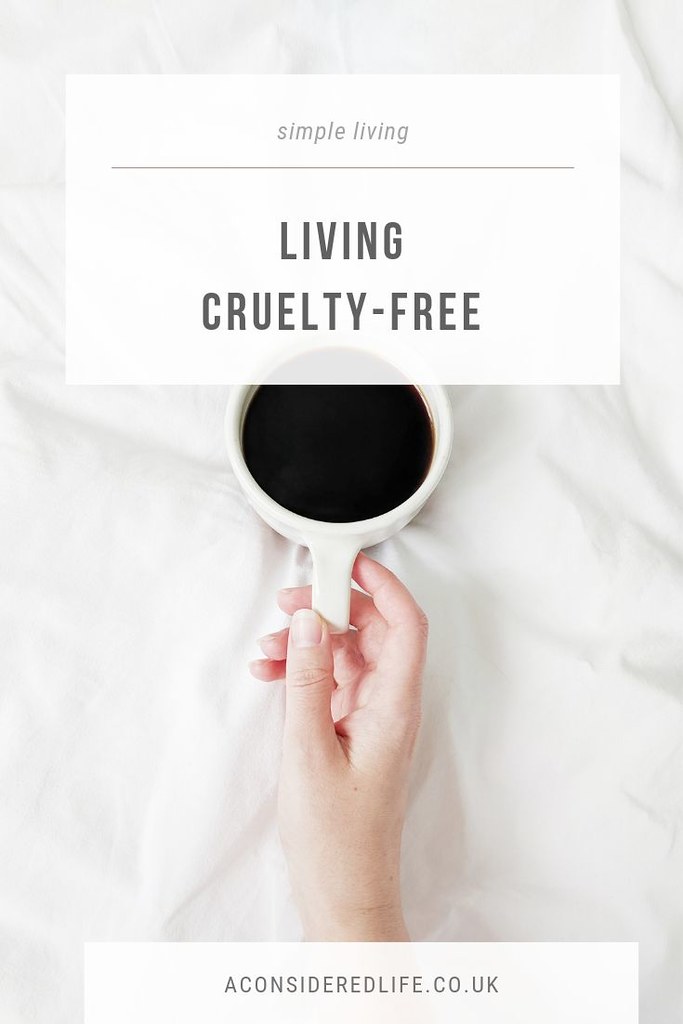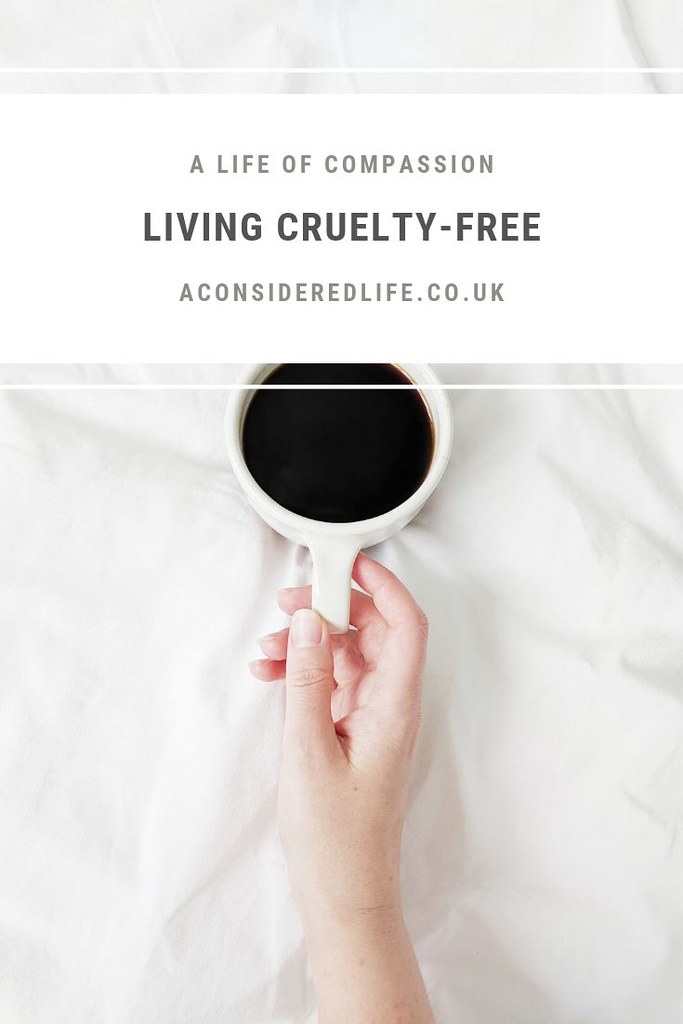
Living cruelty-free means making decisions, as far as practicable and possible, that avoid the exploitation of humans, animals, and the planet. There are many ways we can try to live a life that's more conscious and considered. Living a more compassionate lifestyle is a learning curve of education and adaptation that never ends. As we learn where our boundaries lie, we can adjust our habits and our choices so that we are morally consistent.
I'm not here to judge. I've followed a vegan lifestyle for over 15 years and I've only been living low waste for a few years – I'm still learning. When brands and businesses greenwash their policies, it can be difficult to know what products to buy and which companies to support. There's so much to take in and consider; it can become overwhelming. What's important is to keep learning and adapting our habits to reflect what we believe in.
No one can live a completely cruelty-free lifestyle. Our world is set up to exploit the most vulnerable and least privileged. That doesn't, however, mean we're excused from doing our best to limit the cruelty we participate in. By changing our habits, we can live as cruelty-free as possible within this system, whether that's by changing our diet, our shopping habits, or our wardrobe.
Eat A Plant-Based Diet
A whole food plant-based diet is not only the most sustainable, it's also the least cruel. Avoiding meat and dairy is the ‘single biggest way’ to reduce your impact on Earth and it can help fight the climate crisis. It lowers your carbon footprint, is more affordable, healthier, and is suitable for everyone at all stages of life. If you eat meat, try to reduce and then eliminate animal products from your diet. Likewise, if you're vegetarian, try to reduce and then eliminate dairy and eggs from the meals you eat. If mental or physical health prevents you from switching to a 100% plant-based diet, look for the switches you can make, however small they may be. For more information, I've answered some of the most commonly asked questions about veganism, written a vegan FAQ, and shared lots of posts about plant-based eating.
Switch To Cruelty-Free Products
One of the easiest switches every single person can make is to buy cruelty-free products, including skincare, makeup, household cleaning products, and anything else you buy. Look into whether the brands you buy and products you use are tested on animals or contain animal derived ingredients, and make sure they're eco-friendly. Take note of which ones are and need replacing; as you use your existing products up, make the switch to cruelty-free, vegan-friendly alternatives. I've compiled a cruelty-free brand directory that will help you to find replacements for skincare and makeup; for household items, visit my recommendations page. There are so many options available now that are easily accessible both on the high street and online, everyone can make the compassionate choice to avoid animal tested products and choose environmentally-friendly alternatives.
Stop Visiting Zoos and Aquariums
The use of animals for entertainment is cruel and exploitative. Although there are some legitimate conservation sites that do genuine work to help wild animals, they are few and far between. Most zoos and aquariums are profit-driven and use animals to make money. Although zoos and aquariums claim they breed animals for eventual release, these breeding programmes are primarily there to ensure captive populations. Adequate space is rarely provided for animals, this is particularly true of species who roam larger distances in their natural habitat. The majority of animals show behavioural problems and often die prematurely. Studies have shown there is no compelling evidence for the claim that zoos and aquariums educate or encourage promote attitude changes in visitors. Stop supporting places that use animals for entertainment and instead visit sanctuaries where animals are brought to live and be protected for the rest of their lives.
Wear Cruelty-Free Clothing
Leather, wool, fur, down, and silk are unnecessary for the majority of us. Most of us do not live in environments with extreme temperatures or harsh climates; we do not need animal fur or hides to survive. The leather industry is awful for the environment while the production of fur, down, and wool all involve cruelty to animals. Read more about leather here; wool here; fur here; and down here. We can get by just fine by switching to more eco-friendly and cruelty-free fabrics like organic cotton, linen, modal, poplin, hemp, jersey, and many others. Alternatively, if you have a preference for leather shoes and wool coats, there are plenty of unworn or lightly used second-hand clothing you can purchase instead. My sustainable fashion directory will help you find ethical brands who treat their workers and the planet with respect.
Be An Advocate
Use your voice to call for change. Sign petitions, support related organisations or causes, attend seminars and panels, share information and links. Encourage others to make habit shifts by informing and educating about the cruelty involved in eating, wearing, and exploiting others for our own benefit and entertainment. When friends or family talk about buying a new wool coat or skincare product, nudge them into making the cruelty-free choice of opting for an alternative by offering brand recommendations. If someone mentions they're going on holiday and want to ride an elephant or take photographs with a tiger, warn them of the cruelty involved in those practices. Encourage others to learn where their food came from, how their clothes were made, and why certain practices are cruel.

